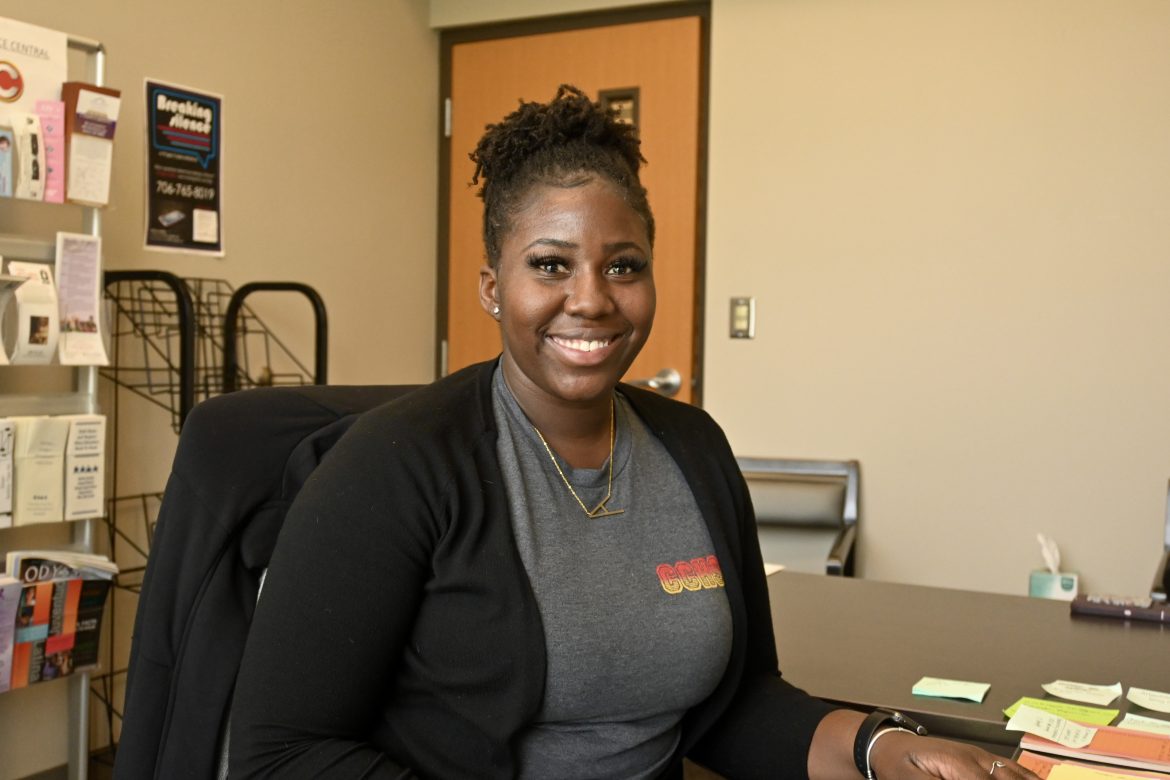Clarke Central High School social worker Ashley Simpson-Haley sits in her office located in the CCHS Administrative Suite on Nov. 5. Simpson-Haley has witnessed that students tend to get overwhelmed with financial issues while balancing their school life. “A lot of times students have a lot to worry about. They’re focused on their academics, they’re focused on their attendance, all of that stuff, and then they’re watching their parents maybe struggle at home,” Simpson-Haley said. “So being a person in the building that they can come and talk (to feels) like it gives them a sense of hope to know that there’s something out there that can help them or someone that they can talk to if they’re going through something.” Photo by Aza Khan
At the beginning of the 2021-22 school year, CCHS hired new social worker Ashley Simpson-Haley within the counseling department to give students and families a helping hand with social and financial instability.
New social worker Ashley Simpson-Haley was hired at the beginning of the 2021-22 school year to become a resource for students of low-income families.
According to Simpson-Haley, the job of a social worker has many aspects to it, whether it’s connecting families to resources, reaching out to families outside of school, or being the responsible adult students feel comfortable talking to.
“Before this position, I worked at Advantage Behavioral Health and the crisis centers, so I worked with substance issues and mental health crises,” Simpson-Haley. “Then, I was in grad school getting my masters in social work, but before that, I worked at Cedar Shoals as their college advisor for two years.”
Counseling department Secretary Kelly Patton believes Simpson-Haley plays a major role in regards to being a valuable source for students at CCHS.
“If (Simpson-Haley) wasn’t here, students that would need extra resources would have to be connected with an outside resource, outside of the school, so they would have to wait until later to go see them (in comparison to) something as simple as walking down the hallway and she’s right there,” Patton said.
According to Simpson-Haley, students sometimes feel embarrassed or their pride makes them reluctant to reach out to the resources that are available within the school.
“A lot of times I get referrals from families so parents who may need help (and) they’ve really been struggling, so I connect that parent with an agency or I might have a parent who tells me, ‘I’m kind of short on my utility bills,’ so I find an agency that may help do that,” Simpson-Haley said. “I’m also the person that students can reach out to (for the) clothes and food closet downstairs for students. They can come to me and I take them down to get clothes or food and put it in a bag that they can use discreetly.”
